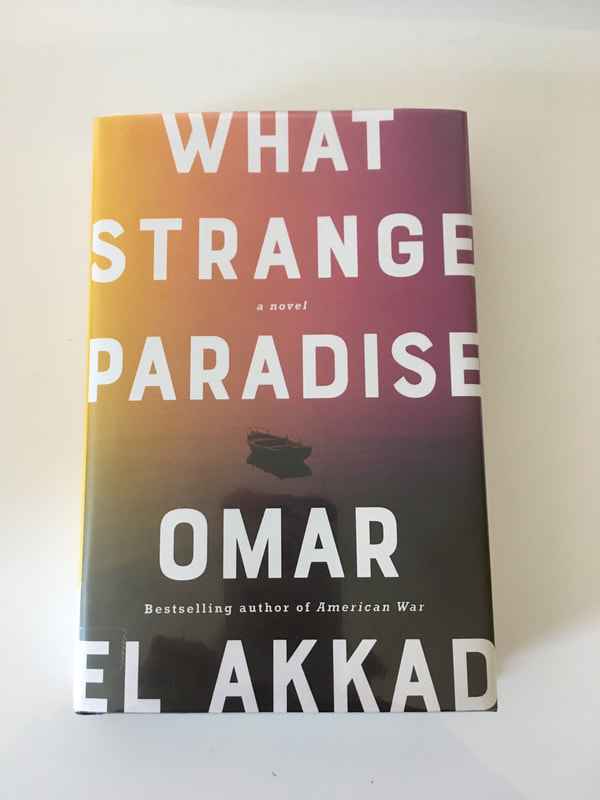|
Who can forget that heartbreaking photo of the little Syrian boy washed up on a shore in Turkey? His little shoes and red t-shirt seared into our consciousness with horror and shame. No doubt, Omar El Akkad didn’t forget that image as that’s where his new book begins. A young boy lies on the shore of an unnamed Greek island, the only survivor from a rickety boat of migrants. Frightened and disoriented, he runs towards the trees where he is discovered by Vanna, a teenager struggling with her own familial tragedy. El Akkad, whose debut novel American War presented a dystopian view of the U.S. after climate change redraws the world map, now turns his lens onto the plight of refugees. In this new book, we are confronted by the human face of the migrant crisis. We are reminded of the human stories behind the headlines, the families left behind, the mothers never knowing what became of their children, and the common dismissal of refugees everywhere. The book alternates between Before and After, each chapter compelling us toward an ending we both expect and dread. Before tells the story of Amir’s flight from Syria and his journey as an accidental stowaway on a boat “north”. Here we meet a broad slice of passengers of mixed nationalities, all with the shared dream of escaping their lives to find a better future. Such a future always includes the West. Conversation swings from philosophical discussions to practicalities such as taking an English name “that sounds like one of theirs”. Cynicism abounds, along with wisdom and the reality of life in a world of war. It’s a bleak world view that we have no connection to, or even conception of. Amir overhears his father say, “There’s no such thing as conflict. There’s only scarcity, there’s only need.” This opinion is countered by the English student on board who says, “One should try to believe in things, even if they let you down afterward.” When Amir meets Vanna, he has never seen a girl like her before and then understands. “He quickly learned you could tell the quality of a product by how Western the people on the packaging looked. White skin, blue eyes, blond hair - these things spoke of luxury, betterment, possibility.” In the After chapters, Amir and Vanna are on the run from the military, especially the haunted Colonel who is nursing his own PTSD and disillusionment. Vanna is the best of humanity, even as she struggles with her own abandonment and neglect. Even though she calls the island home, she sees herself as an outsider. Juxtaposed with the horrors aboard the boat, is the luxury of the island and their callousness towards the migrants. Indifferent to the constant plight of migrants washing ashore, they worry it spoils the tourists’ holiday. The beach is raked clean, the migrants’ belongings carried away as quickly as possible. If this all sounds horrible, there are good people here too. The children receive help from the woman managing the refugee centre, and later, when Vanna is hiding in the woods, one of the army guards doesn’t give her position away - an act he is later punished for. On board the Calypso, Amir is given food, water, and comfort from the pregnant woman beside him. The book is written in such a compelling way, I couldn’t put it down. Yes it is haunting and uncomfortable, and a damning indictment on the harsh realities of the refugee crisis. But in the end we are not left without hope. In fact, that isn’t even the point. We are made to bear witness to these harsh realities and to acknowledge our shared humanity. Long-listed for the Giller Prize, What Strange Paradise is heartbreaking, tender, brilliant. I wish we didn't need to still say this, but... stay safe my friends. Mask up, and for God's sake, get vaccinated. Twice. In the meantime, happy reading. Joni
0 Comments
|
Archives
July 2024
Categories |

 RSS Feed
RSS Feed
